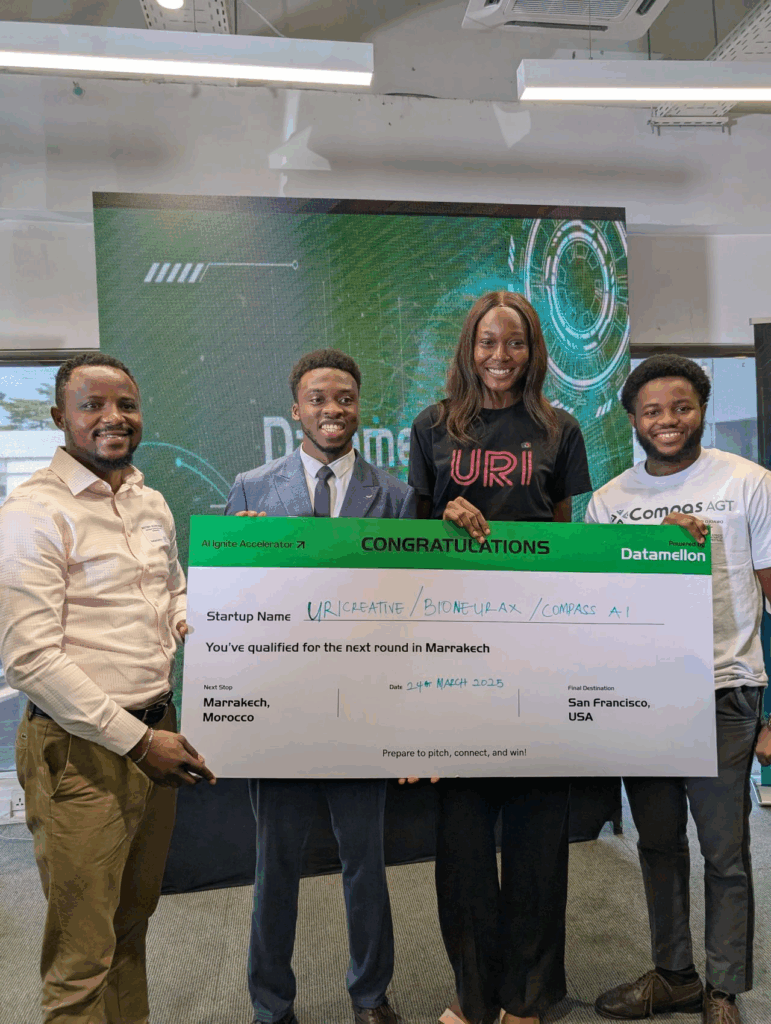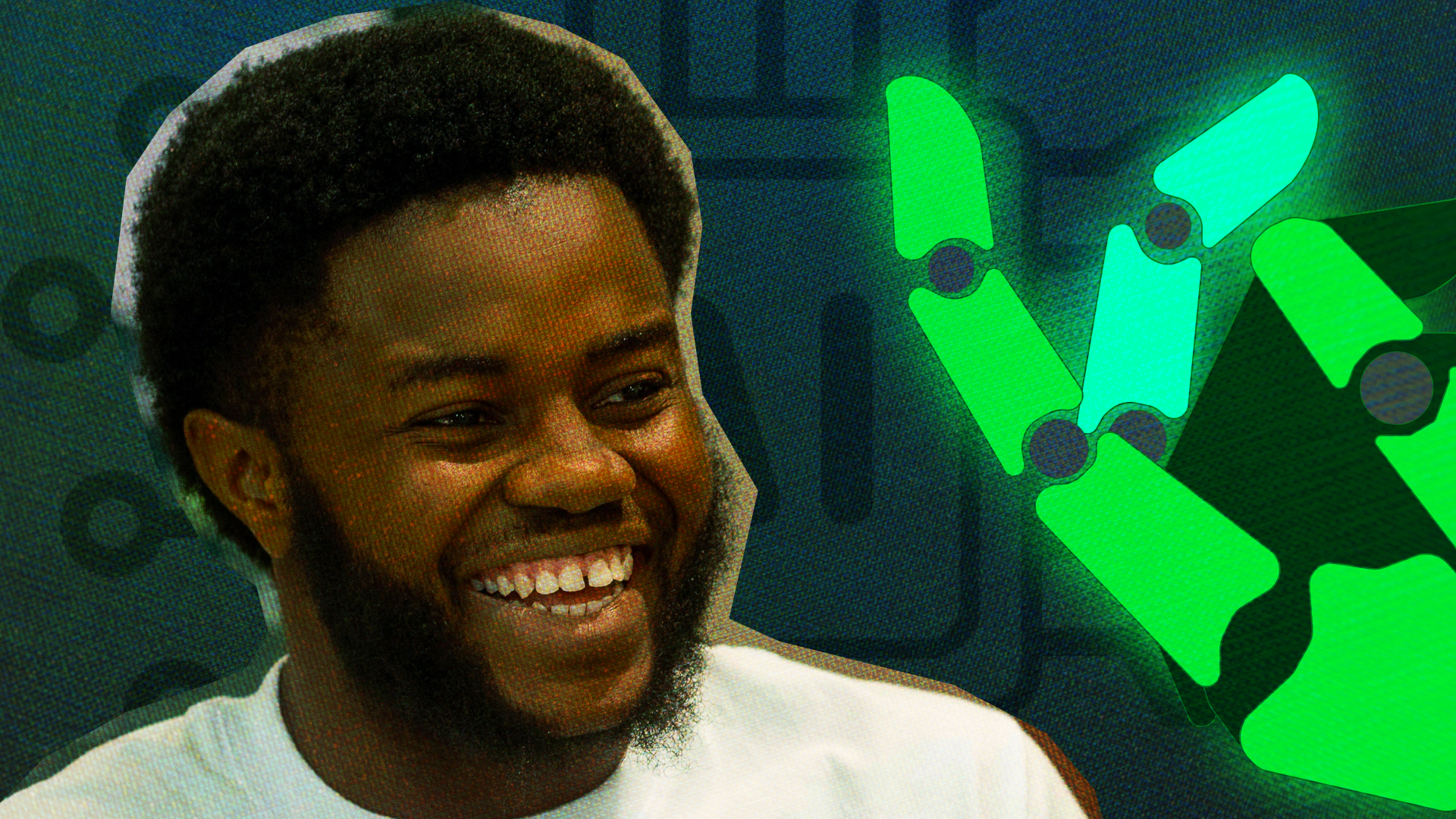When David-Bobola Ojoawo informed his parents in his early teens that he was dropping out of civil engineering at the University of Ibadan after just one year, the conversation could have gone entirely out of hand.
“I had to present my accomplishments and financial potential to convince them of my new path,” Ojoawo recalls.
By then, he had already been coding since age of 15, where he built automation systems and trading algorithms for clients across Europe and Asia. His parents, both lifelong educators, demanded a two-year proof of concept before backing his unconventional path—a fair concern, considering their son had already been broke and homeless while chasing his entrepreneurial dreams.
Today, that bet is paying off. Ojoawo’s latest venture, CompasAI, is tackling the future of work head-on. At a time when AI threatens to make entire roles obsolete, CompasAI positions itself as the tool that closes the skills gap before machines do. Its flagship product, AGT (Aggregator), uses psychometric AI to map career paths and deliver highly personalised, no-fluff upskilling at scale. The mission isn’t to compete with universities or online schools, but to make sure people everywhere have the skills they need to stay employable in an AI-driven economy.
The long road to innovation
The journey to AGT wound through multiple failed startups and financial ruin. After leaving university, Ojoawo’s first major attempt was Cinevase, a cinematic metaverse experience that consumed his savings and left him homeless. “We spent heavily on proof-of-concept rather than technology,” he admits. It was during this period that he met his current co-founder, Olubunmi Fabanwo, then at Binance, who joined him in building Cinevase.
While freelancing on the side—developing trading algorithms and other projects—he continued reinvesting everything into Cinevase. The breakthrough came in 2022 when Ojoawo and friends from Russia and Switzerland won second place at the Microsoft Global Hackathon, securing prize money and long-awaited validation of his technical abilities.
However, the real spark for CompasAI came closer to home. Friends constantly asked Ojoawo to help them break into tech, and he had already built what he describes as the world’s first career psychometric AI, recommending skills tailored to each person. During an event, he noticed just how many people were still struggling to start their careers. He showed a few attendees the AI, and their response was overwhelmingly positive. That feedback convinced him and his co-founder to launch CompasAI as a platform, turning a side experiment into a product built for scale.
“I realised people were paying hundreds of dollars for courses they didn’t have the potential to do,” Ojoawo said. His own experience bouncing between platforms like Coursera and Udemy, manually searching for relevant topics while skipping irrelevant sections, became the blueprint for CompasAI.
The connection crystallised while building “Market Bat”—a tool that analysed market sentiment by scraping Twitter and news. If algorithms could curate and synthesise vast amounts of financial data into actionable insights, why couldn’t the same approach revolutionise learning?
Building for a world where adaptive learning matches the speed of AI
“We realised people still had problems even after receiving recommendations,” he says. The best way to move forward was to use AI to create personalised courses based on individual contexts and goals.
Traditional courses follow fixed curricula regardless of what users actually need. AGT understands context: a journalist wanting to learn coding gets a different scope than a marketer exploring the same topic. The AI condenses 50 hours of generic material into 45 minutes of targeted, essential information. It also meets you at your level of difficulty—beginner, intermediate or expert.
“The AI uses the user’s topic, goal, and context to search for the best resources, then breaks down lengthy content into bite-sized, 15-minute topics,” Ojoawo explains.
The numbers alone don’t capture the real disruption. Platforms like AltSchool Africa and Coursera still operate on rigid models designed around traditional diplomas. CompasAI positions itself differently, as a buffer against the wave of job displacement AI is expected to trigger.
For $12 a month (₦6,500 for Nigerians), users get 60 hours of adaptive learning, unlimited access options, and a system built to strip away redundancies. Its aggregator runs personalised content searches in five to 10 minutes, collapsing what would normally take Google Gemini twice as long. Features like calendar integration, WhatsApp reminders, and AI-led instruction aren’t bells and whistles; they’re designed to make upskilling continuous and frictionless.
Global impact and market validation
The market is responding with serious recognition. CompasAI has won Pitchfest 2024, the World Summit Awards for the most innovative learning platform from Nigeria, and regional victory in the Data Mellon Pitch AI battle. More significantly, the platform secured a Federal Government partnership with the Times-profiled 3 Million Tech Talent (3MTT) program to power learning initiatives across Nigeria—a chance to scale training programs to millions through AGT’s personalised approach.
Ojoawo positions the AGT as competing directly with productivity platforms like ChatGPT and Gemini. In benchmarking tests, he claims CompasAI’s personalised aggregation model outperforms tools that merely retrieve information or follow static teaching approaches.
“AI should be developed to be AI, not to mimic humans,” Ojoawo argues. “Attempts to make AI human-like lead to a loss of accuracy and poorer performance.” This philosophy extends to AGT’s core mission: helping people maintain and upskill their careers rather than replacing human capability.

Looking forward
Sixteen months after CompasAI’s development began, Ojoawo sees this as just the beginning. The company is exploring fundraising for infrastructure scaling while maximising impact with current resources. His experience with failed ventures taught him the importance of sustainable growth over venture capital-fueled expansion.
For David-Bobola Ojoawo, the young man who convinced sceptical educator parents to support his unconventional path, CompasAI represents vindication and years of sheer hard work. More importantly, it offers millions facing an uncertain AI future a way to stay relevant, skilled, and employable.
Get passive updates on African tech & startups
View and choose the stories to interact with on our WhatsApp Channel
Explore




